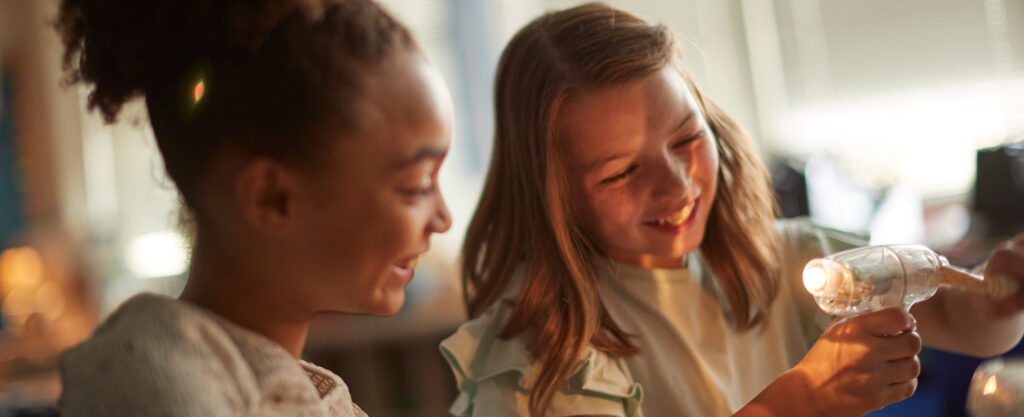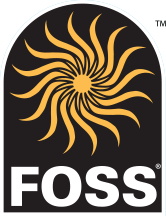Project Goals

FOSS Program for K–8
FOSS has set out to achieve three important goals: scientific literacy, instructional efficiency, and systemic reform.
Scientific Literacy
The National Research Council (NRC) in A Framework for K–12 Science Education and the American Association for the Advancement of Science (AAAS) in Benchmarks for Scientific Literacy, have described the characteristics of scientific literacy:
- Familiarity with the natural world, its diversity, and its interdependence.
- Understanding the disciplinary core ideas and the cross-cutting concepts of science, such as patterns; cause and effect; scale, proportion, and quantity; systems and system models; energy and matter—flows, cycles, and conservation; structure and function; and stability and change.
- Knowing that science and engineering, technology, and mathematics are interdependent human enterprises and, as such, have implied strengths and limitations.
- Ability to reason scientifically.
- Using scientific knowledge and scientific and engineering practices for personal and social purposes.
The FOSS Program design is based on learning progressions that provide students with opportunities to investigate core ideas in science in increasingly complex ways over time. FOSS starts with the intuitive ideas that primary students bring with them and provides experiences that allow students to develop more sophisticated understanding as they grow through the grades. Cognitive research tells us that learning involves individuals in actively constructing schemata to organize new information and to relate and incorporate the new understanding into established knowledge. What sets experts apart from novices is that experts in a discipline have extensive knowledge that is effectively organized into structured schemata to promote thinking. Novices have disconnected ideas about a topic that are difficult to retrieve and use. Through internal processes to establish schemata and through social processes of interacting with peers and adults, students construct understanding of the natural world and their relationship to it. The target goal for FOSS students is to know and use scientific explanations of the natural world and the designed world; to understand the nature and development of scientific knowledge and technological capabilities; and to participate productively in scientific and engineering practices.
Instructional Efficiency
FOSS provides all teachers with a complete, cohesive, flexible, easy-to-use science program that reflects current research on teaching and learning, including student discourse, argumentation, writing to learn, and reflective thinking, as well as teacher use of formative assessment to guide instruction. The FOSS Program uses effective instructional methodologies, including
- active learning to investigate natural phenomena,
- use of scientific practices,
- focus questions to guide exploration and sense-making of phenomena,
- working in collaborative groups,
- multisensory strategies,
- integration of literacy,
- appropriate use of digital technologies, and
- making connections to students’ lives, including the outdoors.
FOSS is designed to make active learning in science engaging for teachers as well as for students. It includes these supports for teachers:
- Complete equipment kits with durable, well-designed materials for all students.
- Detailed Investigations Guide with science background for the teacher and focus questions to guide instructional practice and student thinking.
- Multiple strategies for formative assessment at all grade levels.
- Benchmark assessments (grades 1–8) with online access for administering, coding, and analyzing assessments (grades 3–8).
- Strategies for use of science notebooks for novice and experienced users.
- FOSS Science Resources, a book of module-specific readings with strategies for science-centered language development.
- The FOSS website with interactive multimedia activities for use in school or at home, suggested interdisciplinary-extension activities, and extensive online support for teachers, including teacher prep videos.
Systemic Reform
FOSS provides schools and school systems with a program that addresses community science-achievement standards. The FOSS Program prepares students by helping them acquire the knowledge and thinking capacity appropriate for world citizens.
The FOSS Program design makes it appropriate for reform efforts on all scales. It reflects the core ideas incorporated into the next-generation science standards. It meets with the approval of science and technology companies working in collaboration with school systems. It has demonstrated its effectiveness with diverse student and teacher populations in major urban reform efforts. The use of science notebooks and formative-assessment strategies in FOSS redefines the role of science in a school. FOSS enhances the way that teachers engage in science teaching with one another as professionals and with students as learners, and the way that students engage in science learning with the teacher and with one another. FOSS takes students and teachers beyond the classroom walls to establish larger communities of learners.

